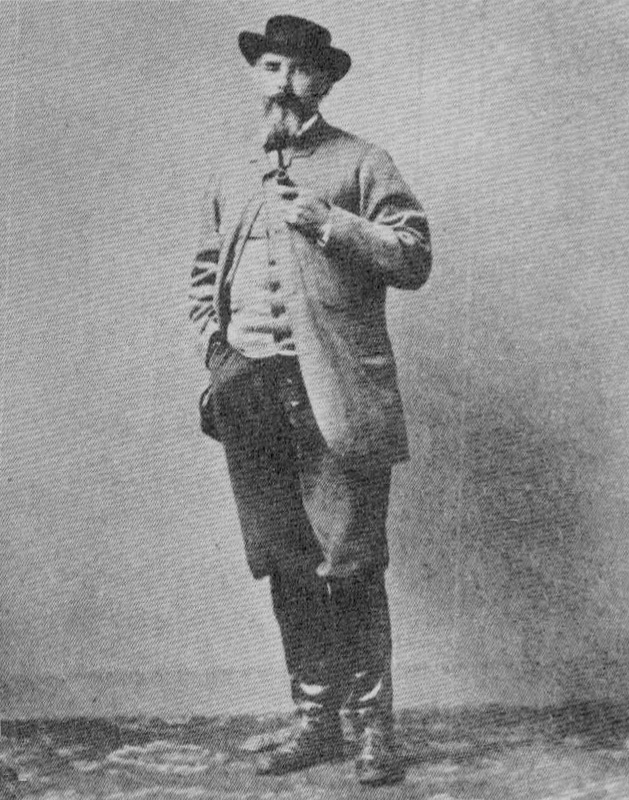
HISTORICAL EVENTS THAT TOOK PLACE ON THIS DAY IN CANADA
19 November

Sir Matthew Baillie Begbie (1819-1894)
B. C. Separate Colony
November 19 was an important day for British Columbia. On this date in 1858, the mainland was made a separate colony. James Douglas, who was already Governor of Vancouver Island, was sworn in as Governor of British Columbia at a ceremony at Fort Langley, which was intended to be the capital. The creation of the new colony was necessary because thousands of American gold miners were arriving, and there was a danger that the States might try to take over the territory unless it were governed by Britain.
One of the most remarkable figures in Canadian history presided at the swearing-in ceremony. He was Matthew Baillie Begbie, a giant of a man with a face like Mephistopheles. Bruce Hutchison in his book The Fraser wrote: "And in his thirty-six years of judging, riding, walking, feuding and praying he had more fun than any other man in British Columbia."
Douglas had asked the British Government to send him a judge to help keep order. Begbie proved to be the ideal man for the job, although he had no experience as a judge, and very little as a lawyer. At the time of his appointment he had no law practice but was a reporter for the Law Times. He wanted to leave Britain because his brother had stolen his fiancée!
Begbie, "a government on horseback," held courts everywhere. Although he was ruthless, he was known to be fair, and the miners understood his sense of justice. His bête noire was juries who failed to convict men of murder when Begbie felt they were guilty. On one occasion when a jury brought in a verdict of "not guilty" in the case of a man who had sandbagged a companion in a drunken brawl, Begbie said, "You can go, and I devoutly hope the next man you sandbag will be one of the jury." Actually his bark was worse than his bite. He disliked having to sentence men to death and had a chaplain at his side whenever he had to do so.
November 19 was also chosen as the date when the colonies of British Columbia and Vancouver Island would be united in 1866. Historian Dr. Margaret Ormsby believes the choice of November 19 was sentimental rather than coincidental.
OTHER NOTABLE EVENTS ON THIS DAY IN CANADIAN HISTORY
19 November
-1775 Governor Carleton arrived at Quebec after eluding the Americans (see November 8).
-1867 The British Government turned down a request that British Columbia be allowed to join Confederation.
-1869 The body of Joseph Guibord was buried in Montreal under police protection. There had been riots in Montreal because he had criticized Roman Catholic clergy for banning certain books. Many Roman Catholics felt he should not be buried in consecrated ground.
-1918 An Order-in-Council united government railways. This led to the creation of Canadian National Railways.